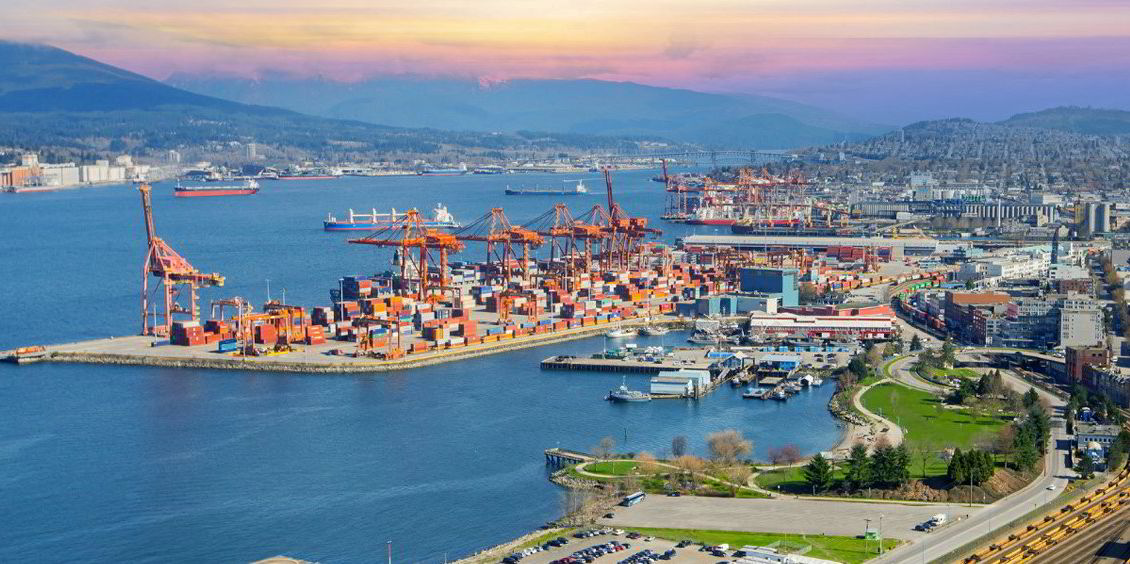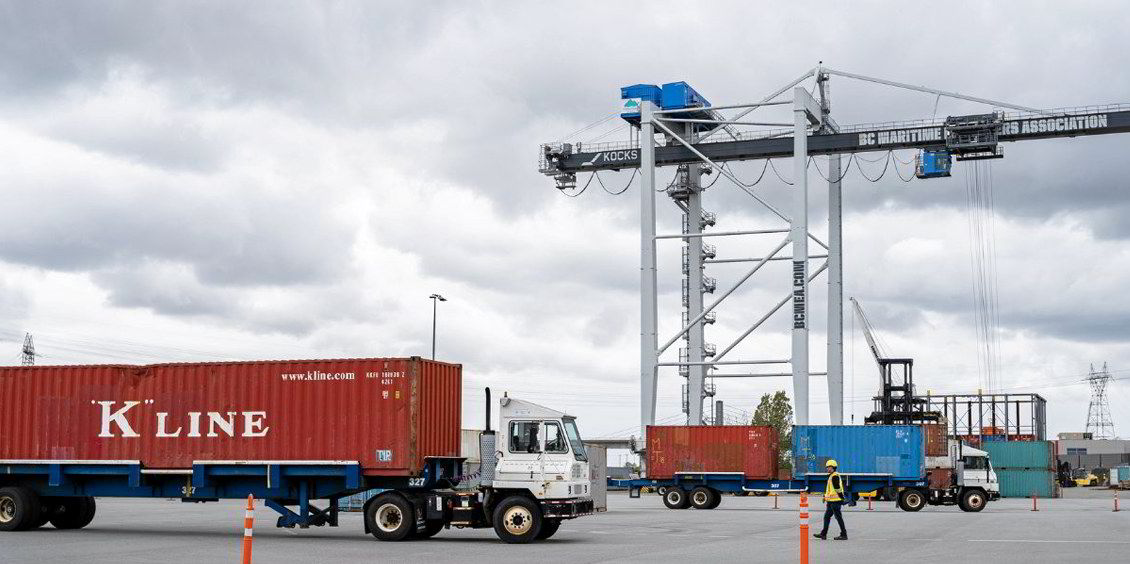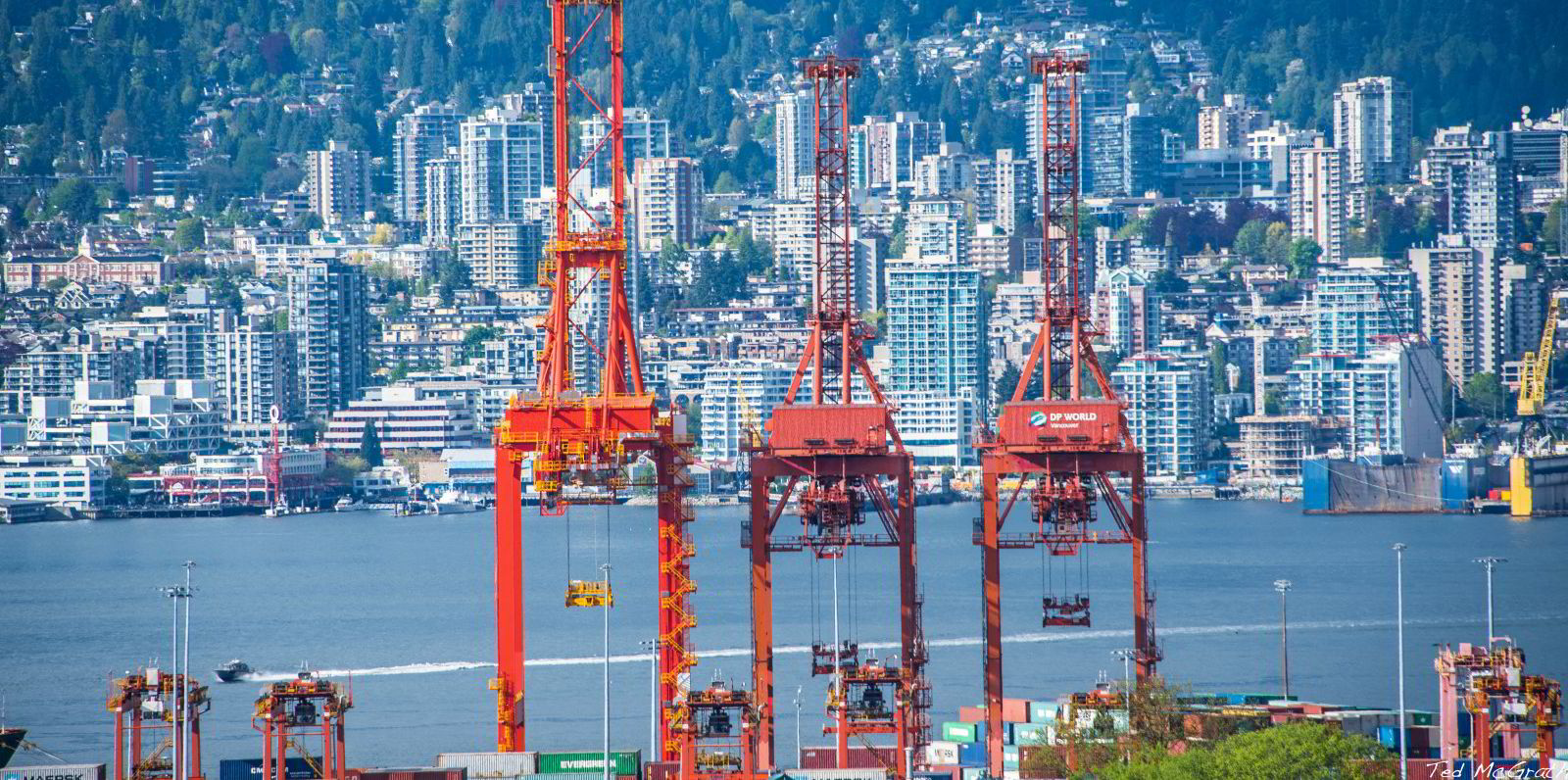The strike by unionised dockworkers in British Columbia has disrupted billions of dollars in containerised cargo from entering and leaving Canada, employers alleged.
The British Columbia Maritime Employers Association (BCMEA), which represents 49 waterfront companies in British Columbia, has cited CAD 7.5bn ($5.67bn) in blocked commerce as a result of a strike by the International Longshore & Warehouse Union Canada (ILWU Canada).
“Twenty-eight consecutive work shifts lost and 10 days of ILWU Canada’s strike action has potentially disrupted $7.5bn of cargo — automotive parts, refrigerated food, fertiliser, critical minerals, commodities and goods that are not reaching Canadians, or our trading partners abroad,” the BCMEA said.
“The economic repercussions of this labour action have only been escalating.”
The association said the strike, which began on 30 June, has compromised the movement of 25% of Canada’s goods as some incoming container ships divert to US West Coast ports, which reached a tentative labour deal in mid-June after 13 months of talks between dockworkers and employers.
“ILWU Canada leadership have even banded together with US West Coast port workers who say they will refuse to work containerships that were rerouted from Port of Vancouver to Port of Seattle — further damaging the reliability and competitiveness of West Coast ports up and down the coast,” the BCMEA said.
ILWU Canada’s 7,500 dockworkers, who move cargo at the major Canadian ports of Vancouver and Prince Rupert, earn $136,000 on average, according to the BCMEA. About 22,000 ILWU dockworkers at 29 ports on the US West Coast make about $200,000 per year, the Pacific Maritime Association has said.
The ILWU Canada strike is also jeopardising fruit exports because harvest season has just begun for global markets, the BCMEA said.
“For example, up to 10m pounds [4.54m kg] of blueberry exports are at risk, with Japan and South Korea as primary export destinations.”
The employers association said it tried to end the strike with a proposal that would satisfy the union’s request to perform terminal upkeep and compensate the union for non-union maintenance work, but ILWU Canada has not been amenable to any offerings.
“The most recent proposal continues to show the BCMEA’s ongoing commitment to reaching an agreement,” it said.
“We believe a deal can be reached if ILWU Canada wants one.”
ILWU Canada did not immediately return calls, but it said the six biggest shipping companies, which are BCMEA members and control 70% of global shipping, are disrupting commerce by not agreeing to union requests for higher wages and expansion into terminal upkeep.
The union said these companies together made $100bn in profit last year — up 1,500% from 2019 — as longshore workers’ base wages in British Columbia grew less than 10% over the same period.
The liner operators have also contributed to inflation by boosting freight rates to $10,000 per 40-foot equivalent unit (feu) from $2,000 per feu over the past few years, ILWU Canada said.
“Container charges have since moderated, but overall shipping costs including terminal fees remain high,” union president Rob Ashton said in a statement.
“The federal government would not intervene to impose contract terms on the shipping companies, protecting Canadians from cost and disruption, and it’s sheer hypocrisy to now argue that government should force longshore workers back to work.”





